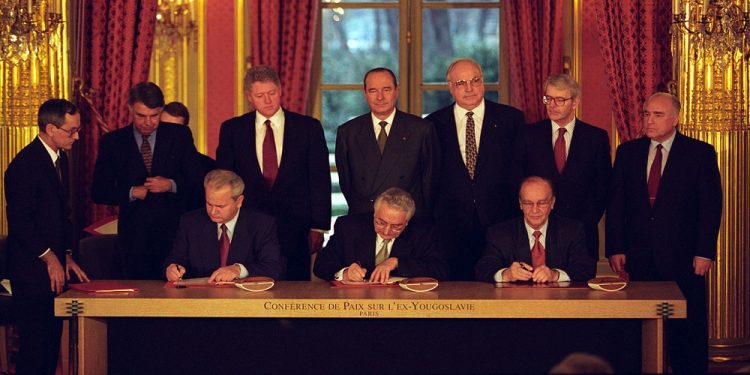
Dayton Peace Agreement Day
Observed annually as a regional public holiday in Republika Srpska on November 21st, Dayton Peace Agreement Day commemorates the agreement reached in 1995 that brought the Bosnian War to an official end. Republika Srpska is one of the two entities within the confederation of Bosnia and Herzegovina.
This holiday marks the fateful agreement that ended a conflict that began in 1992 when the Serbian Republic of Bosnia and Herzegovina declared its independence. The war lasted until 1995 and resulted in over 2 million people being displaced and more than 100,000 killed, making it one of the most destructive conflicts in Europe since World War II.
The History of Dayton Peace Agreement Day
When Yugoslavia broke up in 1991, several new nations were created, highlighting some of the ethnic differences that had existed within the country. This was particularly evident in Bosnia, where demographics showed that the country was split along Serbian and Bosniak lines.
Although conflicts in Bosnia occurred before 1992, the Bosnian War officially began on April 6, 1992. This war involved three factions: the Bosniaks (loyal to the Republic of Bosnia and Herzegovina), the Croats (loyal to the Croatian Republic of Herzeg-Bosnia and Croatia), and the Serbs (loyal to Republika Srpska and FR Yugoslavia).
The Bosnian War was characterized by the indiscriminate shelling of towns and cities, ethnic cleansing, and systematic mass rape. It resulted in over 100,000 people killed, mainly Bosniaks, and was the first genocide in Europe since WWII.
The war ended in 1995 with the signing of the Dayton Accords. The agreement began in Dayton, Ohio, in the U.S. on November 21st, 1995, and was officially signed on December 14th, 1995, in Paris, France.
Observing Dayton Peace Agreement Day
This holiday serves primarily as a memorial day to remember all the victims who died during the Bosnian War. It is also a day to educate future generations about the impact of the war so that, hopefully, future conflicts can be avoided.








